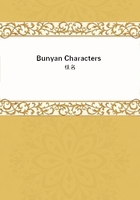
第156章 GAIUS(2)
In little things also Gaius, mine host, showed his sensitive and solicitous hospitality. We all know housekeepers, not to say innkeepers, and not otherwise ungenerous housekeepers either who will grudge us a sixpennyworth of sticks and coals in a cold night, and that, too, in a room furnished to overflowing by Morton Brothers or the Messrs. Maple. We take a candlestick and a dozen candles with us in the boot of the carriage when we wish to read or write late into the night in that great house. Another housekeeper, who would give you her only daughter with her wealthy dowry, will sometimes be seen by all in her house to grudge you a fresh cup of afternoon tea when you drop in to see her and her daughter. She says to herself that it is to spare the servants the stairs; but, all the time, under the stairs, the servants are blushing for the sometimes unaccountable stinginess of their unusually munificent mistress. I shall give you "line upon line, precept upon precept, here a little and there a little" of Aristotle upon munificence in little things till you come up to his pagan standard. "There is a real greatness," he says, "even in the way that some men will buy a toy to a child. Even in the smallest matters the munificent man will act munificently!" As Gaius, mine host, munificently did.
3. Speaking of children, what a night of entertainment good old Gaius gave the children of the pilgrim party! "Let the boys have the crumbed milk," he gave orders. "Butter and honey shall they eat," he exclaimed over them as that brimming dish came up. "This was our Lord's dish when He was a child," he said to the mother of the boys, "that He might know to refuse the evil and to choose the good." Then they brought up a dish of apples, and they were very good-tasted fruit. Then said Matthew, "May we eat apples, since they were such by and with which the serpent beguiled our first mother?" Then said Gaius, "Apples were they by which we were beguiled, Yet sin, not apples, hath our souls defiled.
Apples forbid, if eat, corrupt the blood.
To eat such, when commanded, does us good.
Drink of His flagons then, thou Church, His Dove, And eat His apples who are sick of love."
Then said Matthew, "I make the scruple because I awhile since was sick with eating of fruit." "Forbidden fruit," said the host, "will make you sick, but not what our Lord hath tolerated." While they were thus talking they were presented with another dish, and it was a dish of nuts. Then said some at the table, "Nuts spoil tender teeth, especially the teeth of children," which when Gaius heard, he said, "Hard texts are nuts (I will not call them cheaters)
Whose shells do keep their kernels from the eaters;
Ope then the shells and you shall have the meat;
They here are brought for you to crack and eat."
Then Samuel whispered to his mother and said, "Mother, this is a very good man's house; let us stay here a good while before we go any farther." The which Gaius the host overhearing, said, "With a very good will, my child."
4. Widower as old Gaius was, and never for a single hour forgot that he was, there was a certain sweet and stately gallantry awakened in his withered old heart at the sight of Christiana and Mercy, and especially at the sight of Matthew and Mercy when they were seen together. He seems to have fallen almost in love with that aged matron, as he called her, and the days of his youth came back to him as he studied the young damsel, who was to her as a daughter. And this set the loquacious old inn-keeper upon that famous oration about women which every man who has a mother, or a wife, or a sister, or a daughter has by heart. And from that he went on to discourse on the great advantages of an early marriage.
He was not the man, nor was he speaking to a mother who was the woman, ever to become a vulgar and coarse-minded match-maker; at the same time, he liked to see Matthew and Mercy sent out on a message together, leaving it to nature and to grace to do the rest.
The pros and cons of early marriage were often up at his hearty table, but he always debated, and Gaius was a great debater, that true hospitality largely consisted in throwing open the family circle to let young people get well acquainted with one another in its peace and sweetness. And Gaius both practised what he preached, and at the same time endorsed his watchful wife's last testament, when he gave his daughter Phebe to James, Christiana's second son, and thus was left alone, poor old Gaius, when the happy honeymoon party started upward from his hostel door.